THE THREE ORANGE APPLES
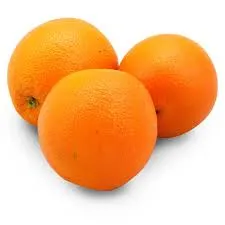
Source
Once upon a time, there was a king and a queen who had a daughter, beautiful as the day, and wise as a saint. At eighteen years old, this girl fell so ill, so ill, that the king summoned the most learned of all the doctors in Montpellier.
“Doctor, here are a thousand gold coins. You will have twice as much when my daughter is cured."
"King, your daughter will recover. But the cure is not here. It is abroad, far, far away, in the land of orange apples. In this country, there is a beautiful garden, where it never snows or ice. In this beautiful garden, there is an orange apple tree, all white with flowers, where seven hundred wild nightingales sing, night and day. On this orange apple tree, there are nine apples as red as gold. King, send for a young boy who picks some, and who brings back three. When your daughter will have eaten the first one, she will get up from her bed. When your daughter will have eaten the second one, she will be more beautiful and healthier than ever. When your daughter will have eaten the third one, she will say: “I will have neither peace nor rest until I am married to the boy who brought me the three orange apples."
Then the king ordered drumming three times a day throughout the country:
“Ran plan plan, ran plan plan, ran plan plan, The king's daughter is very ill. To cure her, she must eat three orange apples. But the three apples of orange are in a foreign country. To the boy who brings them back the king promises his daughter in marriage."
At that time, a poor widow and her three boys lived in their little house. The two eldest were lazy boys, drunkards, and gamblers. They weren't worth the rope to hang them with. But the last was kind to everybody. He was wise, hardworking, strong, and bold like no other.
“Mother,” said the eldest, “you heard what the town drummer shouted. Give me a basket. I'm leaving for the land of orange apples. When I return, I will marry the king's daughter."
The eldest left. For seven weeks he walked from dawn to midnight. Finally, he arrived in the land of orange apples. In this country, there is a beautiful garden, where it never snows or ice. In this beautiful garden, there is an orange apple tree all white with flowers, where seven hundred wild nightingales sing, where seven hundred wild nightingales sing night and day. On this orange apple tree, there were nine apples as red as gold.
The eldest picked three orange apples, red as gold, put them in his basket and left. At the end of his journey, he rested under a large tree, near a clear fountain. At the edge of the clear fountain sat a woman, black as the hearth, and old as a trail.
“My friend, what are you carrying in your basket?"
"Old woman, I carry three toads."
"Three toads, it is."
Before sunset, the eldest arrived at the king's castle.
“King, here are the three orange apples. Now give me your daughter in marriage."
Quickly, the king opened the basket.
“Insolent, they are three toads. Executioner, take this worthless thing and go hang him."
The executioner obeys.
The next day, the middle son said to his mother:
“Mother, you know what the town drummer shouted. Give me a basket. I'm leaving for the land of orange apples. When I return, I will marry the king's daughter."
The middle son left.
Source: Les trois pommes d’orange, from the French book Contes populaires de la Gascogne, tome 2, published in 1886
Previous Tale: The Two Twins and the Two Fairies
Hello, my name is Vincent Celier.

I am writing translations of folk tales that I found in public domain French books, so that people who do not understand French may enjoy them too.

This is another (longer) tale in the section "Fairies, Ogres, Dwarves". I am not sure why it is in this section, because there are no fairies, ogres, or dwarves in this tale.
"Oranges apples" is a strange term. It is the translation of "pomme d'orange". At the time the tale was told, and even a long time afterward, oranges were luxury items. As apples were well-known, and oranges were similar in shape to oranges, the story-tellers called them "pommes d'orange" (orange apples).
I remember that in the 1950s, for Christmas my siblings and I were always given one or two oranges, although they were no longer luxury items. When my parents were young children in the 1920s, they were given oranges at Christmas, so they did it for us too, thirty years later.
Once again, we have three siblings, the two eldest are bad, and the youngest is very good and the true hero of the story.

Kati went to get the four workers in the morning so that they would finish the work in the vineyard.
They tied the vines that they had trimmed yesterday. I have never seen the vineyard so bare, as I have never been here at this time of year.
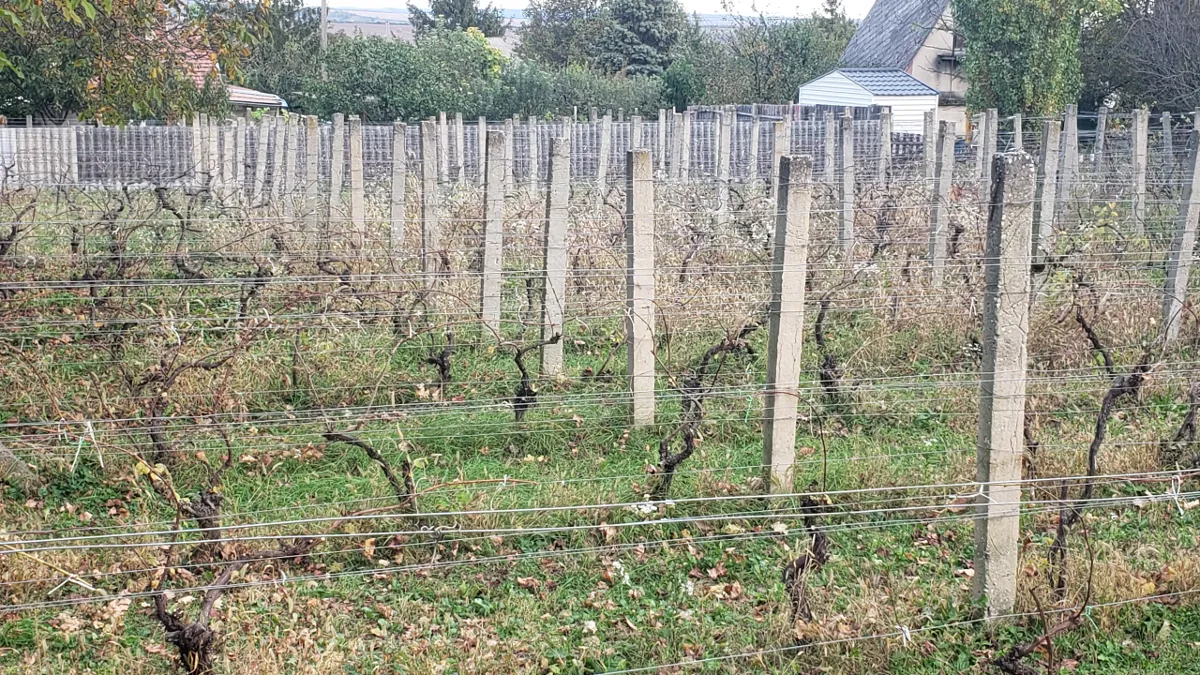
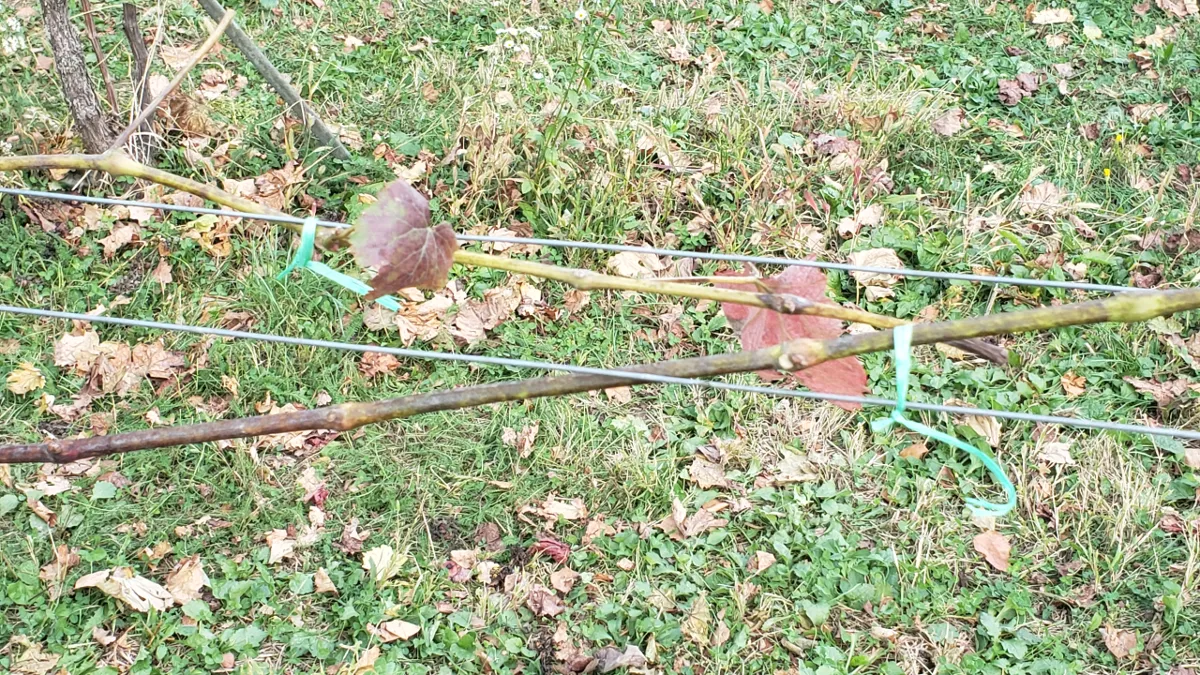
The poles that support the wires to which the vines are tied to are made of cement. They are three meters long, with one meter in the ground. They are quite heavy. One advantage of this kind of pole is that you can unroot them easily and move them somewhere else, as there is no cement base as for metallic poles.
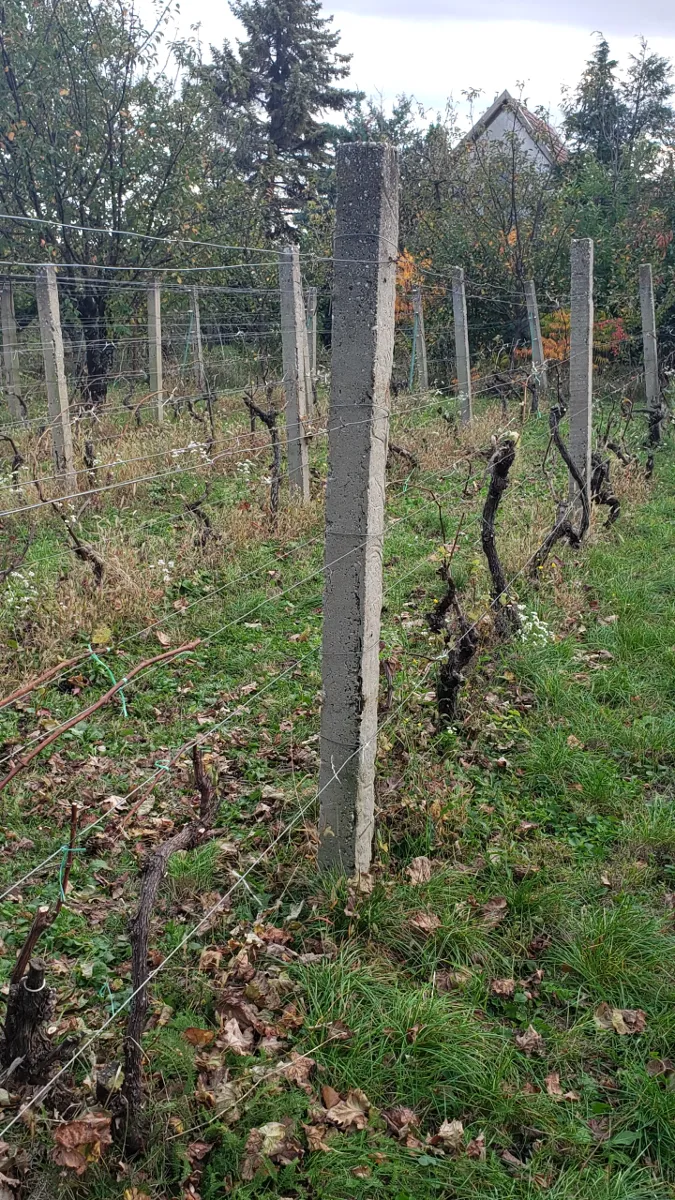
All the cuttings have been gathered in one place and will be burned when they are dry.
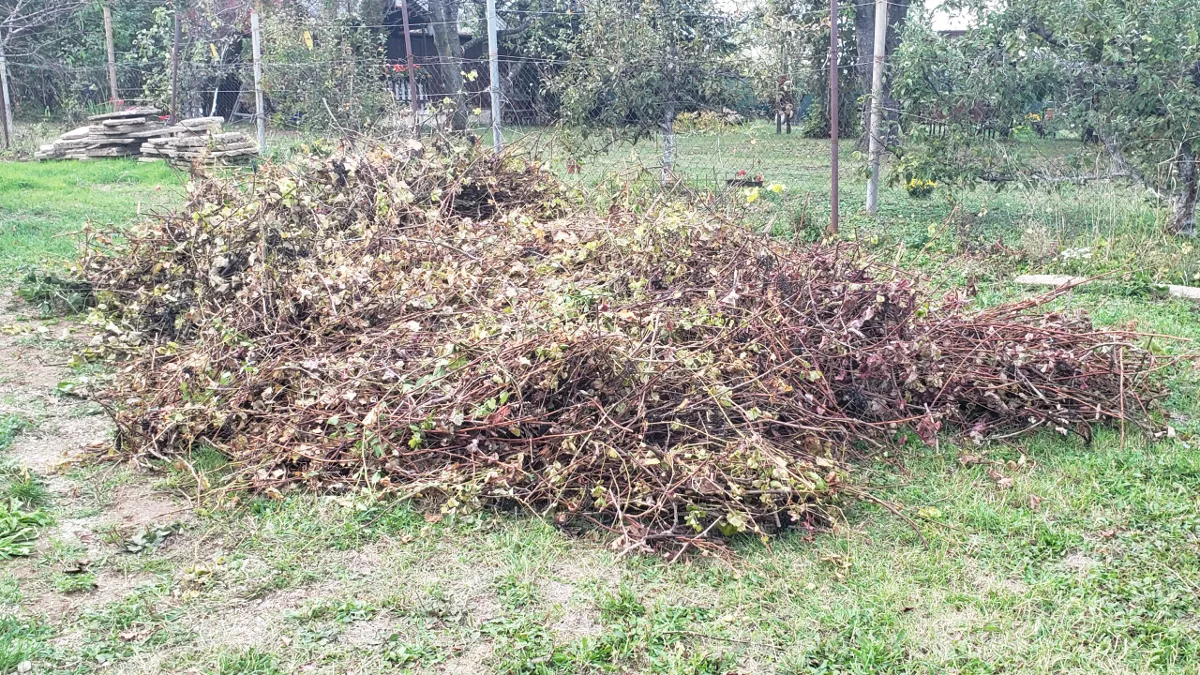
-- Vincent Celier